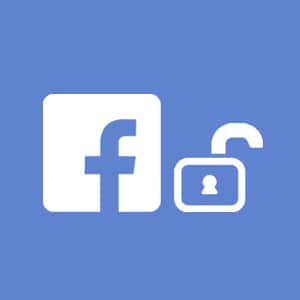Do you often wonder about how your classmates or relatives are doing back in your hometown? Are they married? Are they still in the country, or are they living abroad? Do they have kids already? Wanna know who gained a few pounds amongst your friends?
We are all familiar with photo albums. They keep our family’s history intact, and those stories tell themselves each time a member of the household opens one of them. However, you may agree with us when we say that having access to photos, videos, and old posts on the digital platform are far more convenient.
A giant online album to share with the world
Facebook acts like a giant online album that allows us not only to store this photos and multimedia content no matter how old they are, but it also lets us react to this material, whether it is an emoji, a comment, or just a simple “like” to remember old time’s sake.
Facebook is arguably the most famous website in the world. It is a social media outlet of epic proportions that is known virtually everywhere. However, there are specific situations in which you may not access the network freely.
One of these reasons is politics. Some governments and authorities don’t want their citizens to spend their time on Facebook, so they’ve decided to ban access to the network altogether.
However, that is not the only scenario in which Facebook access can be blocked. Your school or even your office may not like it when you lose time in social media since from their perspective, you should be occupied with school matters so they may restrict access to it.
These blocking measures are often performed via IP recognition: any address that falls under a specific category (i.e., inside of the school’s network or in the country that bans access) will not be able to enter Facebook.
However, there is a workaround to this issue: Virtual Private Networks (VPN) can spoof your location by letting you borrow a different IP number. If you change your online identity, you will be able to unblock Facebook anywhere, even in sites in which access is restricted.
 The king of social media
The king of social media
There are numerous social media outlets and networks in the world, all with different purposes. Facebook is unique because it is practically an online album with the opportunity to interact with people all around the world, including those inside your circle of trust and even those outside of it.
It is an American network, created in 2004 by Mark Zuckerberg, Eduardo Saverin, Dustin Moskowitz, Andrew McCollum, and Chris Hughes. They were all Harvard students at the time of the page’s launch.
At first, Facebook was destined only for Harvard students. However, the Facebook phenomenon started to grow, and soon, higher education institutions in Boston began to adopt the network as well.
After all the Massachusetts area started to use Facebook, it was clear, in 2006, that it was time to let all people have access to this marvellous invention. From that year on, people older than 13 years old were allowed to register in the site.
Among the activities that could be performed on Facebook, there is the fact that people can add their peers, whether they know them or not, as “friends.” There is an instant chat feature, the option to post all kinds of multimedia content, react to other people’s posts, comment on them, share publications, receive notifications, play games, use apps, and more. Users can also gather in groups with similar interests.
The network is one of the biggest on the planet, and more than 2 billion active users enjoy Facebook as of January 2018. Having said all this, you may understand why it would be annoying that someone else decides whether you can have access or not.
VPN technology as a tool to unblock Facebook
If you are in a country that bans social media services like Facebook, or if you finished your business in your educational institution or office, you deserve a few minutes, at least, to check out your notifications and your wall. However, you may not get the chance.
That is where VPN comes in. Virtual Private Networks are encryption apps that can make sure to hide your online identity (IP address) and traffic so no one on the web can look at them and use them to their advantage. Among those agents and unwanted scenarios may be hackers, Internet Service Providers, online advertisers, governmental agencies, and censorship, including the one performed in school or work environments.
Virtual Private Networks create a virtual tunnel for the user’s information to travel to remote servers, away from those threats. The best part is that they mask the customer’s IP address and lend him, or her, a temporary one. And since schools, countries, and offices that block Facebook do it by identifying and restricting IP numbers, a reliable VPN can be your ticket out of censorship.
IPBurger is one of the top VPN options in the market to unblock access to Facebook from anywhere. It has a no logging policy that goes very well with the robust encryption protocols and the security features, not to mention the availability of both shared and dedicated IP addresses for users to choose according to the activity they want to perform.
 How to unblock Facebook from anywhere with a VPN
How to unblock Facebook from anywhere with a VPN
- Choose a VPN provider with robust encryption, an open and convenient privacy policy, and servers in multiple locations.
- Enter that VPN’s web page.
- Register for the VPN service.
- Create a username and a password.
- Download and install the VPN app or client in the device you will use to enter Facebook.
- Launch the VPN app.
- Sign in with your recently created VPN account.
- Connect to a virtual server, away from the country or network that blocks you from accessing Facebook.
- Open Facebook and enjoy it without restrictions, anywhere you are.
In conclusion, Facebook is arguably the most prominent of all social media networks, and in only 14 years, it has managed to get their average monthly customers to more than 2 billion. However, because of its popularity, most of its user people get lost while watching the posts, photos, videos, and comments.
As a consequence, numerous schools and offices around the world have blocked access to Facebook for students or workers. Meanwhile, a host of countries have opted to restrict the page as well, to protect national interests.
However, with a VPN, a user can enjoy free access to Facebook from anywhere. The only thing to be done is hiring the VPN app and connect to a virtual server in another nation or network, depending on the circumstance.
 The
The  How to unblock Facebook from anywhere with a VPN
How to unblock Facebook from anywhere with a VPN

